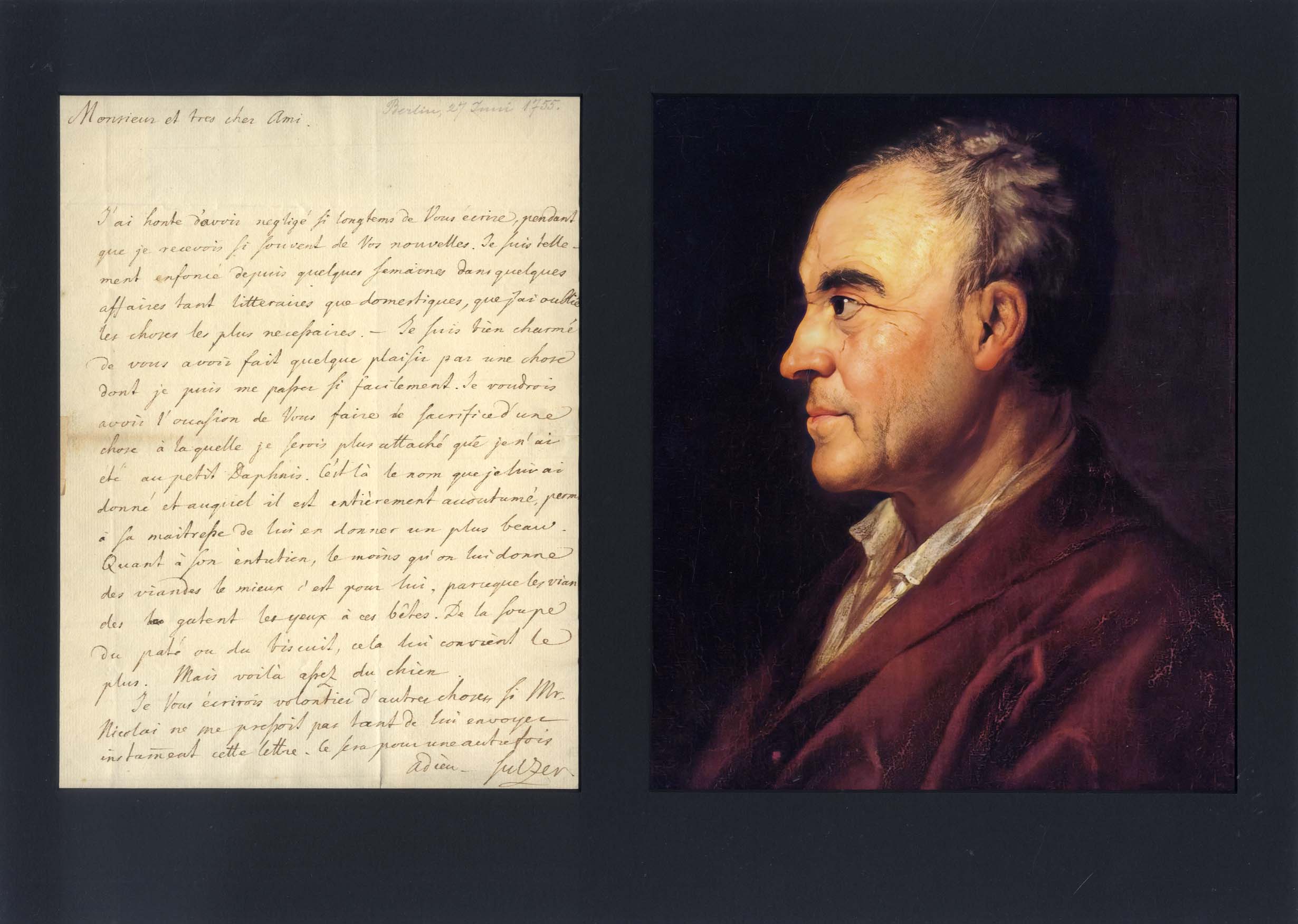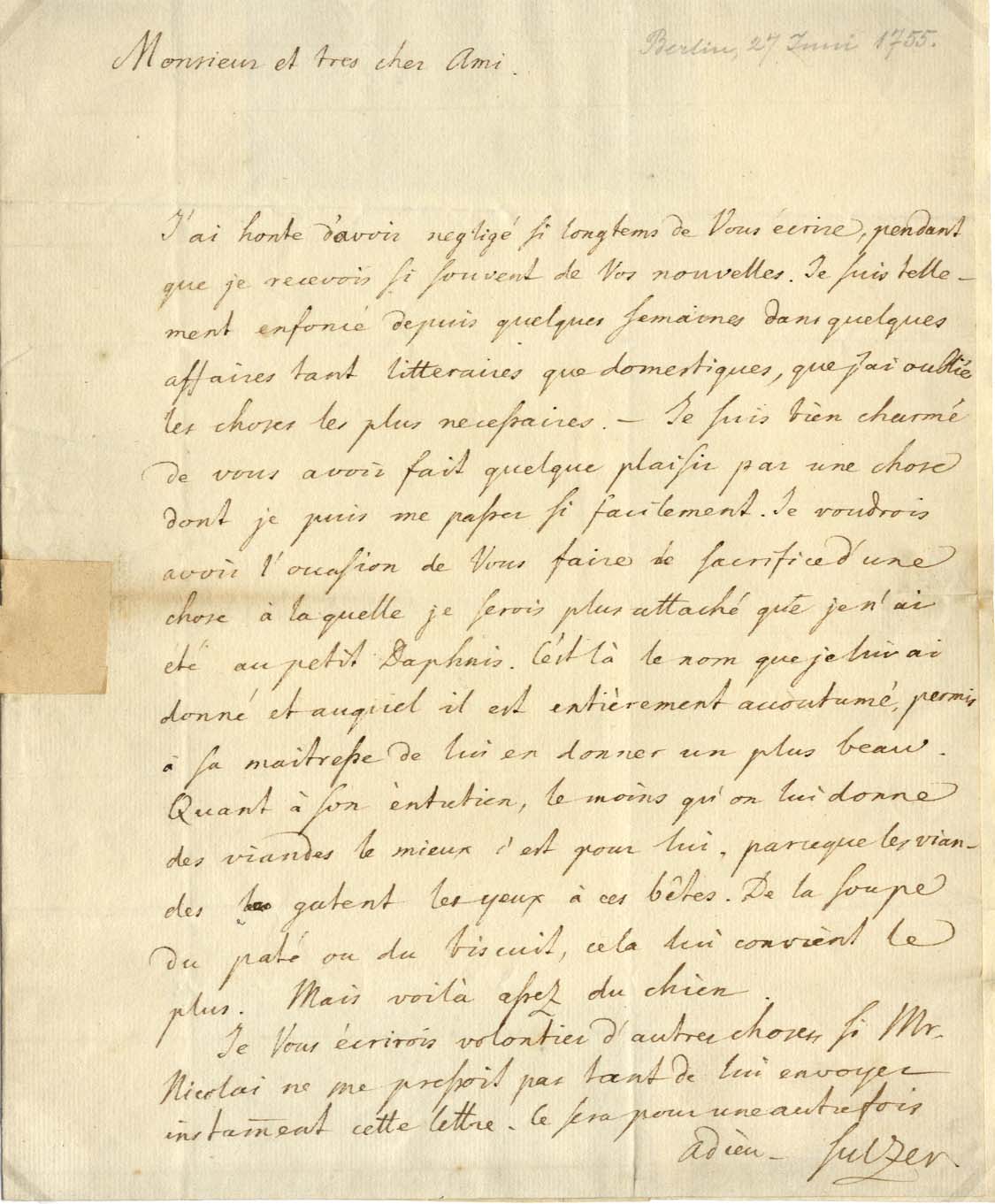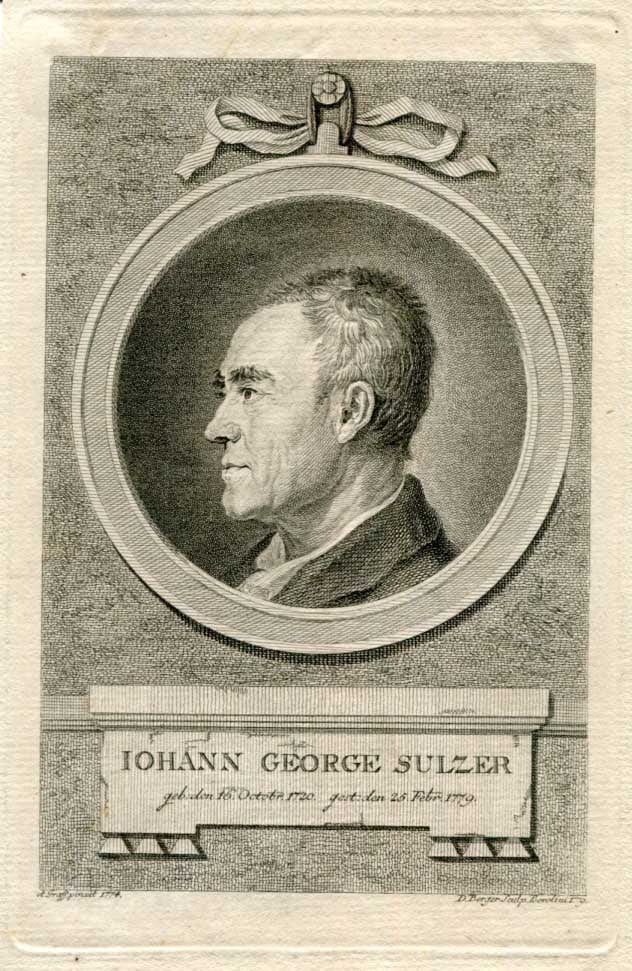Description
Autograph letter signed, one page, 7,5 x 9,25 inch, Berlin, 27.06.1755, in French, to the bookseller Reich in Leipzig - among other things concerning the gift of a dog, written and signed in black ink "Sulzer", attractively mounted (removable) for fine display with a profil picture of Johann Georg Sulzer (altogether 16,5 x 11,75 inch), with intersecting mailing folds, mild foxing, and restorations at the location of the stamp - in nearly fine condition. Accompanied by an engraved picture.
In parts:
"[...] Je suis tellement enfoncé depuis quelques semaines dans quelques affaires tant littéraires que domestiques, que j'ai oublié les choses mes plus nécessaires. Je suis bien charmé de vous avoir fait quelque plaisir par une chose dont je puis me passer si facilement. Je voudrois avoir l'occasion de vous faire le sacrifice d'une chose à laquelle je serois plus attaché que je n'ai été au petit Daphnis. C'est là le nom que je lui ai donné et auquel il est entièrement accoutumé, permis à sa maîtresse de lui en donner un plus beau. Quant à son entretien, le moins qu'on lui donne de viandes le mieux c'est pour lui, parce que les viandes gâtent les yeux à ces bêtes. De la soupe du pâté ou du biscuit cela lui convient le plus [...]"
Translated:
"[...] I have been so immersed for several weeks in a few affairs, both literary and domestic, that I have forgotten the things I most need. I am very charmed to have given you some pleasure by a thing which I can do without so easily. I would like to have the opportunity to sacrifice to you something to which I would be more attached than I was to little Daphnis. This is the name I gave him and to which he is entirely accustomed, allowing his mistress to give him a prettier one. As for its upkeep, the less meat it is given the better it is for it, because meat spoils the eyes of these beasts. Soup, pâté or biscuit suits him the most [...]"
Plus d'informations sur la personne
Profession:
(1720-1779 in Berlin) Swiss professor of Mathematics, who later on moved on to the field of electricity. He was a Wolffian philosopher and director of the philosophical section of the Berlin Academy of Sciences, and translator of David Hume's An Enquiry Concerning the Principles of Morals into German in 1755.
Year of Birth: 1730
Certificat d'authenticité
Toutes nos pièces sont vendues avec un certificat d'authenticité. Si une pièce se révèle être erronée ou si vous n'aimez pas un autographe, vous récupérerez votre argent toute une vie.
Paiement et sécurité
Vos informations de paiement sont gérées de manière sécurisée. Nous ne stockons ni ne pouvons récupérer votre numéro de carte bancaire.



